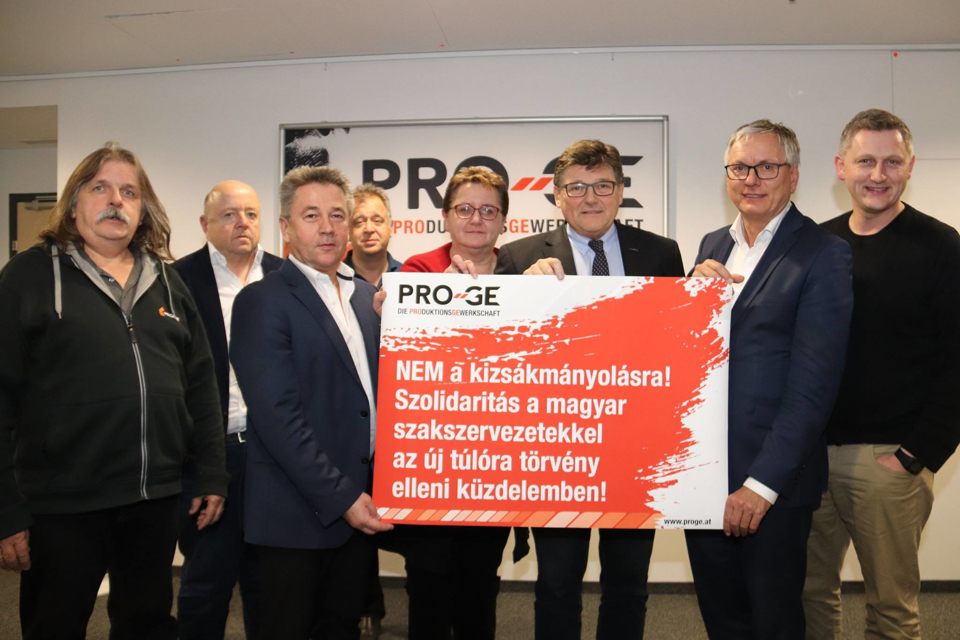The proposal from the Orbán government to increase the overtime threshold to 400 hours per year is detrimental to the health and safety of Hungarian workers, in particular those who have arduous jobs. Moreover, the idea to postpone financial compensation for extra-hours by three years is totally unacceptable. If workers do put in overtime, they should of course be remunerated without delay.
IndustriAll Europe fully understands that mass protests in the streets of Budapest and other cities have been necessary to highlight the opposition to this policy from the side of the workers. Our collective bargaining conference in December 2018, which gathered over 200 participants from all over Europe, endorsed a declaration of solidarity with the Hungarian sister unions in their fight for decent working conditions.
However, we noted with deep regret that the Hungarian law makers adopted the controversial proposal on 12 January 2019. This decision immediately instigated further protests that also involved students' associations, civil organisations and all opposition parties in the Hungarian parliament.
The three largest trade union confederations in the country have agreed to continue protesting and have formed a Strike and Demonstration Preparatory Committee. IndustriAll Europe’s affiliates are taking part in this committee which has formulated four demands:
1) Withdrawal of the last amendment of the Labour Code with regards to the overtime regulation (the so-called slave law) and a general review of the Labour Code.
2) Decent wages for decent work, restoring fair wage distribution, rise in minimum wages for graduated workers.
3) Changes to the strike law and strengthening of the rights to negotiate within the social dialogue
4) A more flexible pension system which respect to the needs of individual workers
IndustriAll Europe calls on the Hungarian government to enter into a dialogue on how to meet the needs for labour without going beyond responsible limits for weekly hours that are also regulated in the European Working Time Directive. We also urge the Hungarian employers to sit down together with the national trade unions to negotiate collective agreements that regulate employment conditions, including working time, in a manner that takes into consideration health and safety of the workforce and their needs for a work-life balance.
IndustriAll Europe general secretary Luc Triangle states that the further developments in this struggle will be followed closely and requests solidarity with the Hungarian manufacturing unions from its affiliates throughout Europe in order to maximise pressure on the Orbán government.



